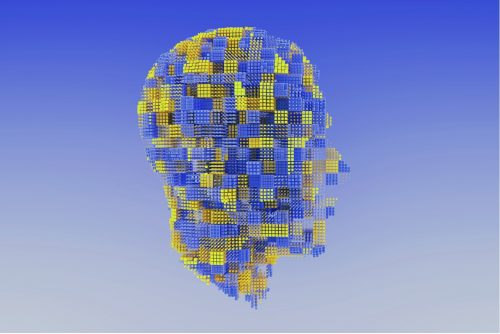The full letter with footnotes can be read and downloaded here.
Dear Dr. Schmidt and Hon. Work,
We write to you, on behalf of the Center for AI and Digital Policy (CAIDP), regarding the final report of the National Security Commission on AI. We understand that the Report is still a draft. We have therefore provided recommendations to be incorporated in the final report. We believe it is vitally important for the United States to pursue a policy for artificial intelligence that reflects democratic values.
The Center for AI and Digital Policy was established by the Michael Dukakis Institute to advise national governments on AI and Digital Policy. We have recently published Artificial Intelligence and Democratic Values, a comprehensive report on the AI policies and practices in 30 countries, and the Social Contract for the Age of AI. Regarding the United States, we noted favorably that the US has supported both the OECD AI Principles and the G20 AI Guidelines, two key global frameworks for AI. We also reported on Executive Orders on AI from both the Trump and Obama administrations that support democratic values, as well as a proposed rulemaking by the OMB that will provide an opportunity for public comment on federal AI regulations. And we recently noted legislation in the Congress to establish a national AI strategy for AI that addresses concerns about bias and fairness.
However, in the CAIDP Report, we also expressed concern about the opaque policy process in the United States. We are aware that the National Security Commission on AI had opposed both public participation in meetings and access to agency records until a lawsuit forced the Commission to become more transparent and accountable. We also noted the failure of the Federal Trade Commission to act on several consumer complaints regarding the use of discriminatory AI techniques. And we observed that the United States, alone among democratic nations, lacks a comprehensive federal privacy law and an agency with the specific competence for data protection and the related challenges of AI decision-making. In our rankings, the CAIDP Report placed the United States in Tier III, approximately in the middle of the countries we evaluated across 12 metrics.
Regarding the just released NSCAI Draft Final Report, we want to first acknowledge the substantial work of the Commission over a two-year period on this complex and important issue. The draft Report reflects the extensive work of the Commission on several AI topics of great importance to the United States. We also appreciate the frequent references in the draft Report to “democratic values” as the United States seeks to shape a national AI strategy.10 We specifically endorse the call to promote “human rights and democracy through joint efforts to counter censorship, malign information operations, human trafficking, and illiberal [sic] uses of surveillance technologies.”
We also support the proposal of the Commission to bring together democratic nations in support of the International Digital Democracy Initiative (IDDI). We believe it is vitally important for democratic governments to collaborate on AI policies and practices. And we appreciate the recognition that data minimization techniques are fully compatible with AI innovation, a point that has also been made by Professor Judea Pearl, one of the honorees of the Michael Dukakis Institute.
Still, many of the problems we identified in the CAIDP Report regarding the earlier work of the NSCAI remain. Although we appreciate the brief opportunity to comment on the draft of the final report, there was too little input from the general public in the work of the Commission and too few opportunities for formal comment. The US Commission on AI did not even assess whether the US had taken steps to implement the OECD AI Principles or the G20 AI Guidelines, formal international commitments that the United States has already made. Key challenges, such as the need to update US laws and regulations, were put over for future work by others. As compared with the national AI strategies of other leading democratic nations, this was not sufficient.
We are also concerned by the decision of the Commission not to “support a global prohibition of AI-enabled and autonomous weapon systems.” Although the CAIDP has not yet considered Lethal Autonomous Weapons Systems (LAWS) as a formal criteria in evaluating national AI policies and practices, our recent review of country policies strongly indicates support among democratic nations for limits on these systems. As we noted in our report, “one of the first AI applications to focus the attention of global policymakers was the use of AI for warfare.”
On the use of AI for biometric mass surveillance, such as facial surveillance, we acknowledge that the NSCAI Report discussed applications that clearly violate human rights, such as the surveillance of Uyghers by the Chinese government, but we were disappointed that the Commission did not propose any actual prohibitions on face surveillance in the United States. As you must certainly be aware, there are efforts underway across the United States to prohibit the use of face surveillance. The Facial Recognition and Biometric Technology Moratorium Act, legislation to stop government use of biometric technology, has gained widespread support in Congress.
Regarding the metrics the CAIDP has established to evaluate a country’s AI policies and practices, we specifically advise that the final report of the National Security Commission on AI put forward these recommendations:
- The United States should implement the OECD AI Principles
- The United States should establish a process for meaningful public participation in the development of national AI policy
- The United States should establish an independent agency for AI oversight
- The United States should establish a right to algorithmic transparency
- The United States should support the Universal Guidelines for AI
- The United States should support the Social Contract for AI
- The United States should establish a data protection agency so that it can participate in the work of the Global Privacy Assembly, and support such initiatives as the GPA Resolution on AI and Ethics (2018) and the GPA Resolution on AI and Accountability (2020)
All of these recommendations follow from the CAIDP’s earlier review of national AI policies and practices, contained in Artificial Intelligence and Democratic Values, and the relevant international AI frameworks and norms. We also strongly recommend that the United States support an International Accord for AI, a recommendation put forward by European Commission President von der Leyen in December 2020. And we would ask you to reconsider the opposition to a ban on lethal autonomous weapons. Several leading experts on AI have expressed grave concerns about the risks associated with autonomous weapons systems.
Finally, we are encouraged by the recent comments of President Biden for the Munich Security Conference. The President called for “rules that will govern the advance of technology and the norms of behavior” for artificial intelligence. President Biden said that technologies such as AI should “lift people up and not pin them down.”
Governor Dukakis has also emphasized the need to ensure that AI policies uphold human rights and the rule of law:
We must also recognize that these choices about AI carry real consequences for the rights and freedoms of citizens. We already see how authoritarian governments can use AI techniques to monitor social protest through facial recognition and analysis of communications and travel records. And once these systems are established, they will be difficult to dismantle. World leaders will need to speak clearly about the need to protect democratic values even as they promote this new technology.
We hope that the changes we propose will be made to the final report of the AI Commission to better reflect the AI priorities of the incoming administration and the aspirations of a democratic nation.
Thank you for your consideration of our views. Sincerely,
Marc Rotenberg
Founder and Director,
Center for AI and Digital Policy
Tuan Nguyen
Director, Michael Dukakis Institute CEO, Boston Global Forum Co-founder, AI World Society










